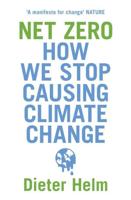Publisher's Synopsis
Geoengineering increasingly appears to be the key to future climate policies. Societies and governments the world over have so far failed to sufficiently curb greenhouse gas emissions necessary for averting dramatic temperature increases and climate change. This book introduces readers to the concepts and methods of climate engineering by presenting the technologies and risks, as well as the political and ethical issues. This timely text tackles topics such as the arguments for and against altering the climate on purpose, the uncertainties of geoengineering technologies, the international coordination in engineering projects, and the duties towards the future generations. Landes engages with global cases, including reforestation efforts, melting ice in the Artic regions, Siberia and Alaska, forest fires in Brazil, California, Australia, and Europe, and coral reef destruction in our oceans.
Distinctive features of the book include:
- Situating climate engineering within the more general context of the Anthropocene
- Setting up an evaluative framework used for assessing climate engineering methods from three angles: feasibility, permissibility, and, preferability
- A taxonomy of the different methods of climate engineering: carbon dioxide removal and solar radiation management
- A structured and critical review of the different justifications for and oppositions to climate engineering R&D as well as deployment
Engineering and Governing the Climate: Ethical and Political Issues is an essential read for all those working in environmental studies, climate policy, and building a sustainable future.








